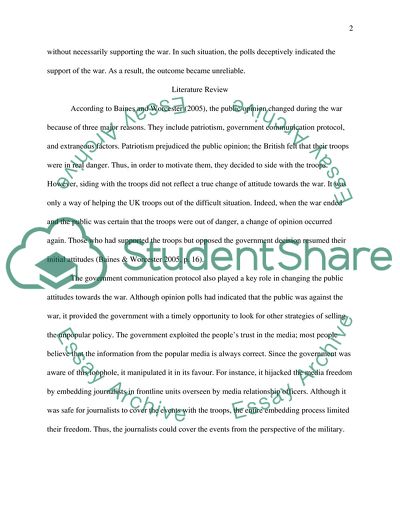Cite this document
(“The Iraq War 2003 in Western media and public opinion Essay”, n.d.)
Retrieved from https://studentshare.org/social-science/1669613-did-the-british-public-opinion-about-the-iraq-war-changed-during-the-war
Retrieved from https://studentshare.org/social-science/1669613-did-the-british-public-opinion-about-the-iraq-war-changed-during-the-war
(The Iraq War 2003 in Western Media and Public Opinion Essay)
https://studentshare.org/social-science/1669613-did-the-british-public-opinion-about-the-iraq-war-changed-during-the-war.
https://studentshare.org/social-science/1669613-did-the-british-public-opinion-about-the-iraq-war-changed-during-the-war.
“The Iraq War 2003 in Western Media and Public Opinion Essay”, n.d. https://studentshare.org/social-science/1669613-did-the-british-public-opinion-about-the-iraq-war-changed-during-the-war.


